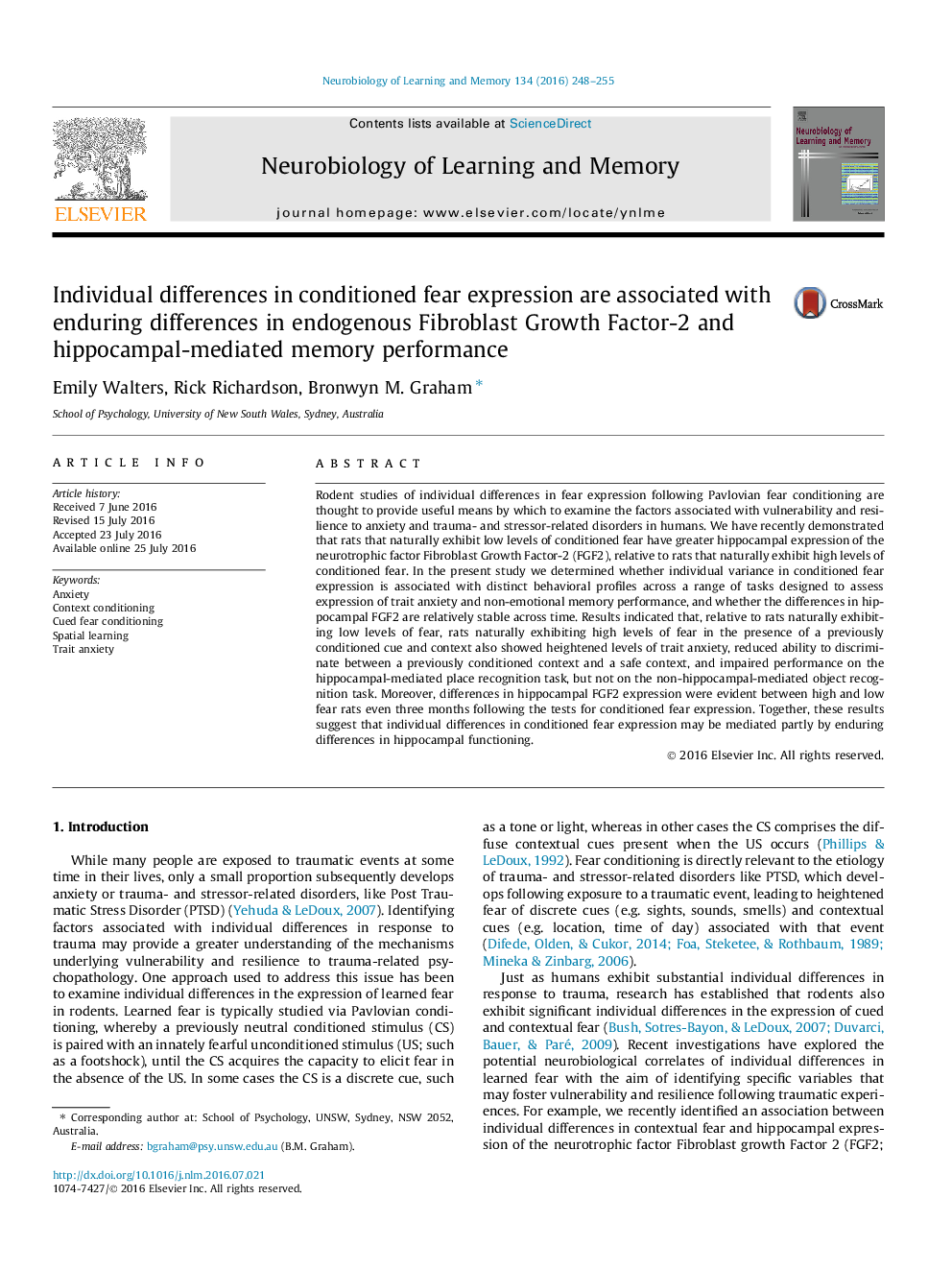| Article ID | Journal | Published Year | Pages | File Type |
|---|---|---|---|---|
| 5043268 | Neurobiology of Learning and Memory | 2016 | 8 Pages |
â¢Phenotypic differences in learned fear are associated with distinct profiles.â¢High Fear rats have increased trait anxiety and reduced context discrimination.â¢High Fear rats have impaired hippocampal-mediated spatial memory.â¢High Fear rats have chronically reduced hippocampal FGF2.
Rodent studies of individual differences in fear expression following Pavlovian fear conditioning are thought to provide useful means by which to examine the factors associated with vulnerability and resilience to anxiety and trauma- and stressor-related disorders in humans. We have recently demonstrated that rats that naturally exhibit low levels of conditioned fear have greater hippocampal expression of the neurotrophic factor Fibroblast Growth Factor-2 (FGF2), relative to rats that naturally exhibit high levels of conditioned fear. In the present study we determined whether individual variance in conditioned fear expression is associated with distinct behavioral profiles across a range of tasks designed to assess expression of trait anxiety and non-emotional memory performance, and whether the differences in hippocampal FGF2 are relatively stable across time. Results indicated that, relative to rats naturally exhibiting low levels of fear, rats naturally exhibiting high levels of fear in the presence of a previously conditioned cue and context also showed heightened levels of trait anxiety, reduced ability to discriminate between a previously conditioned context and a safe context, and impaired performance on the hippocampal-mediated place recognition task, but not on the non-hippocampal-mediated object recognition task. Moreover, differences in hippocampal FGF2 expression were evident between high and low fear rats even three months following the tests for conditioned fear expression. Together, these results suggest that individual differences in conditioned fear expression may be mediated partly by enduring differences in hippocampal functioning.
